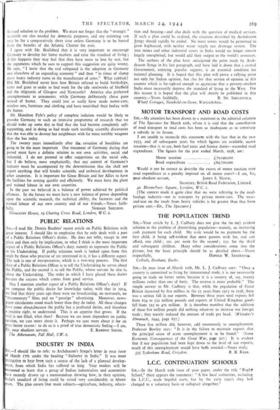PUBLIC RELATIONS
Sta,—I read Mr. Dennis Bardens' recent article on Public Relations with great interest. I should like to emphasise that he only deals with a part of a Public Relations Officer's duties. He does not refer, except in one place and then only by implication, to what I think is the most important aspect of a Public Relations Officer's duty, namely to represent the Public to his Undertaking. If public relations work is looked upon from this angle by those who practise or are interested in it, it has a different aspect. The task is one of interpretation, which is a two-way process. The first duty of a Public Relations Officer is to tell the Undertaking he serves about the Public, and the second is to tell the Public, whose servant he also is, about the Undertaking. The order in which I have placed these duties ensures the success which comes from good service.
May I mention another aspect of a Public Relations Officer's duty? If we compare the public desire for knowledge today, with that in x914, we find that thirty years ago there were no broadcasting, no newsreels, no "documentary " films and no " prestige " advertising. Moreover, news- paper circulations stood much lower than they do today. All these changes have come about,because the public has a profound desire, and therefore a positive right, to understand. This is an appetite that grows. If the old is not filled, what then? Because we are more dependent on public inion, we care more about it. Perhaps we care more about it for an n better reason: to do so is a proof of true democratic feeling.—I am,
your obedient servant, E. RAWDON SMITH. The Athenaeum, Pall Mall, S.W. i.


























 Previous page
Previous page